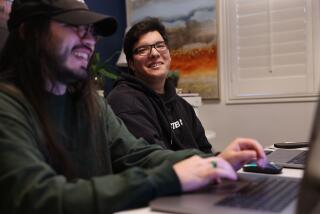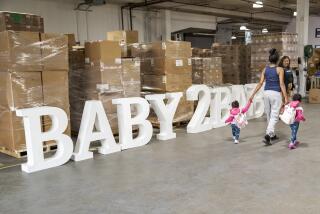Disabled Adults Lend Hand to Youth Club
- Share via
Saying they wanted to give back to the community that has given so much to them, 43 disabled people collected 1,250 toys, books and games for the San Fernando Valley Boys & Girls Club.
The men and women in the community access class at the United Cerebral Palsy/Spastic Children’s Foundation presented the items to Boys & Girls Club officials in a brief ceremony on Wednesday.
“The kids are elated to get the items,” said David Mandell, development consultant at the club. “We are looking forward to putting them to use right away.”
Every year, the community access class selects a community service project, said Wendy Odom, program consultant at the foundation.
After much debate, the group wanted to do something that would benefit children, she said.
Class members researched various day-care and after-school programs before deciding on the Boys & Girls Club, Odom said. Several class members visited the club and interviewed Mandell about operations at the agency and what its needs were.
“They asked me a ton of questions and toured the club,” Mandell recalled. “They really wanted to see what we were doing to help kids.”
With the wish list in hand, class members called area businesses and asked them either to donate items or money to the campaign, Odom said. Clients also pooled their money to buy items to contribute to the drive.
The items will be used in the agency’s day-care and after-school care programs, which serve girls and boys ages 7 to 17, Odom said.
At the ceremony, class members spoke about why they decided to donate items to help kids.
“With today’s crime rate, it is nice that the kids have a place like the Boys & Girls Club to go to,” class member Dorothy Wallis told the crowd of clients, staff and guests gathered in the activity room for the ceremony.
“We know that the children will like the toys and games,” said Chip Anderson, another class member.
The clients get a special satisfaction at being able to give, rather than to be on the receiving end, Odom said.
“It seems to build their self-esteem,” she said. “They are saying, ‘Don’t look at our bodies and think that we can’t do stuff.’ ”
More to Read
Sign up for Essential California
The most important California stories and recommendations in your inbox every morning.
You may occasionally receive promotional content from the Los Angeles Times.













